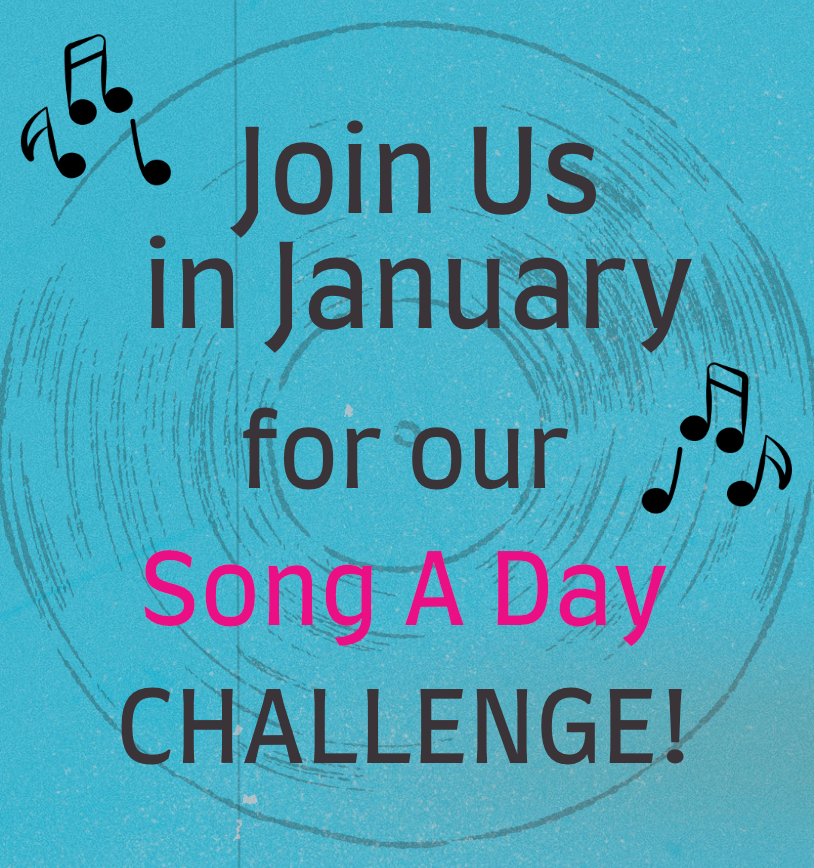
Writing Bad Songs: Why It's Worth It
Jan 13, 2025Writing Bad Songs: Why It’s Worth It
When it comes to songwriting, it’s easy to feel paralyzed by the pressure to create something amazing every time. But I’ve learned that the key to growing as a songwriter isn’t about perfection; it’s about showing up and writing—even if what you write isn’t your best work. Sometimes, you need to embrace the process of writing bad songs.
Here’s why I think writing for the sake of writing, without worrying about the outcome, is so important and how it can help you stick with your songwriting practice.
1. Writing Is a Practice, Not a Performance
One of the most valuable lessons I’ve learned is that the act of writing itself is what matters most. It’s not about whether the song is good or bad; it’s about the process of sitting down and creating. Songwriting, like any other skill, takes practice. The more you write, the more you improve, and the easier it becomes to tap into your creativity.
Sometimes I sit down and write something I don’t like. That’s okay. What matters is that I’m practicing and staying consistent. Writing regularly builds confidence and keeps the creative momentum going.
2. Let Yourself Write "Bad" Songs
I’ve written plenty of songs that I’ll never finish or share. And that’s perfectly fine. In fact, it’s necessary. Not every song needs to be a masterpiece. By giving myself permission to write "bad" songs, I free myself from the pressure of perfection. This freedom allows me to explore new ideas and directions without fear of failure.
Every song I write teaches me something, whether it’s what works, what doesn’t, or how I can approach things differently next time. Even the songs I don’t like are stepping stones toward better songwriting.
3. Finish What You Start—Especially When You’re New
When I first started songwriting, one of the most important things I did was commit to finishing my songs, even if I didn’t like them. Finishing a song helps you learn about structure, melody, and lyrics. It gives you the chance to reflect on your work and understand your creative instincts.
Now that I’ve written many songs, I can tell when a song isn’t worth finishing. But if you’re still developing your skills, I encourage you to finish what you start. Completing a song, even a "bad" one, is an accomplishment that will help you grow as a songwriter.
4. Reflect on the Process
After I write a song, I take time to reflect on it. I ask myself: What worked? What didn’t? What would I change if I came back to it?
This reflection is just as important as the writing itself. It helps me identify areas where I can improve and gives me clarity on what I want to achieve with my music. Sometimes I’ll revisit a "bad" song later and find that it has potential after all. Other times, I’ll leave it behind, knowing that it served its purpose by helping me practice and learn.
5. Redefine Success
Success in songwriting isn’t about writing a hit every time you sit down. It’s about showing up, putting in the effort, and staying committed to your creative practice. By shifting my perspective from "I need to write something amazing" to "I just need to write," I’ve found more joy and freedom in my songwriting.
For me, success is in the process, not the product. It’s about building a habit of creativity and staying curious about where my ideas will take me. By focusing on the journey rather than the destination, songwriting becomes more fulfilling and sustainable.
Embrace the "Bad" to Discover the Good
Songwriting isn’t always easy, and not every session will result in something I love. But I’ve found that even the "bad" songs have value. They’re part of the process, and they help me grow as an artist.
If you’re an educator, this is a lesson you can share with your students. Encourage them to embrace imperfection and focus on the act of creating. Share your own experiences with writing songs that didn’t turn out as planned and how those moments helped you grow. By modeling this mindset, you can inspire your students to take risks and stick with their creative habits.
Then, the next time you sit down to write, let go of the pressure to create something perfect. Write freely, embrace the flaws, and celebrate the fact that you’re showing up for your craft. Because sometimes, the "bad" songs are the ones that lead you to something truly great.
Happy Songwriting!
Kat
Want to see a video on this topic? Check out our YouTube video on writing bad songs:

